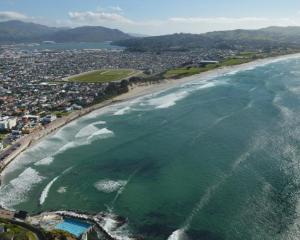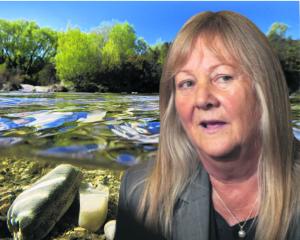A State of the Environment Report on surface water quality in Otago 2006-2011 was presented to the council's natural resources committee yesterday.
It found, of the 62 sites tested, 36 were classified as very good, 10 as good, 12 as fair and 4 as poor. The waterways with the best quality were rivers draining high-altitude and less developed areas, while the worst were in intensively farmed areas of south and southwest Otago and the urban streams of Dunedin.
Environmental information and science director John Threlfall said Otago still had very good water quality although it was coming under pressure in some areas.
Breaking down the results showed that in some areas levels of E. coli and ammonia had dropped, showing some improvements in land practices had been made, he said.
Cr Bryan Scott said the report seemed to show that what landowners had been doing was not good enough.
"Now's the time for the community to look at this. Farmers have obviously been working hard to make improvements. But have they made improvements to the degree intensive farming requires? No they have not."
Cr Trevor Kempton said the effects of intensification could have been much higher if the improvement in practices made in recent years had not been done.
With water plan regulation changes proposed, it showed farmers had made progress with the "basic" farm practices involving E. coli and ammonia, but still had to do "some serious thinking" on nutrient loading issues, he said.
Chairman Stephen Woodhead said there were few surprises in the report but it was disappointing some sites had dropped in the rankings.
Cr Gerry Eckhoff said the council needed to "accentuate the positive" as he was very happy with the tenor of the report, although admitted there were areas which needed tidying up.
Cr Doug Brown said it was a snapshot of trends and confirmed the "hotspots" the council already knew about.
"We are well positioned to look at catchments and changing attitudes of landowners toward water quality - we've achieved a lot in five years."
Committee rununga member Dr Terry Broad was critical of the report's data presentation and the lack of information concerning the poorest sites.
Dr Threlfall said the SOE report was a snapshot and the intensive catchment studies the council did as a result of the report provided more detailed data on those sites.
Submissions on Plan Change 6A (water quality) close on May 2. So far 30 submissions have been received.













